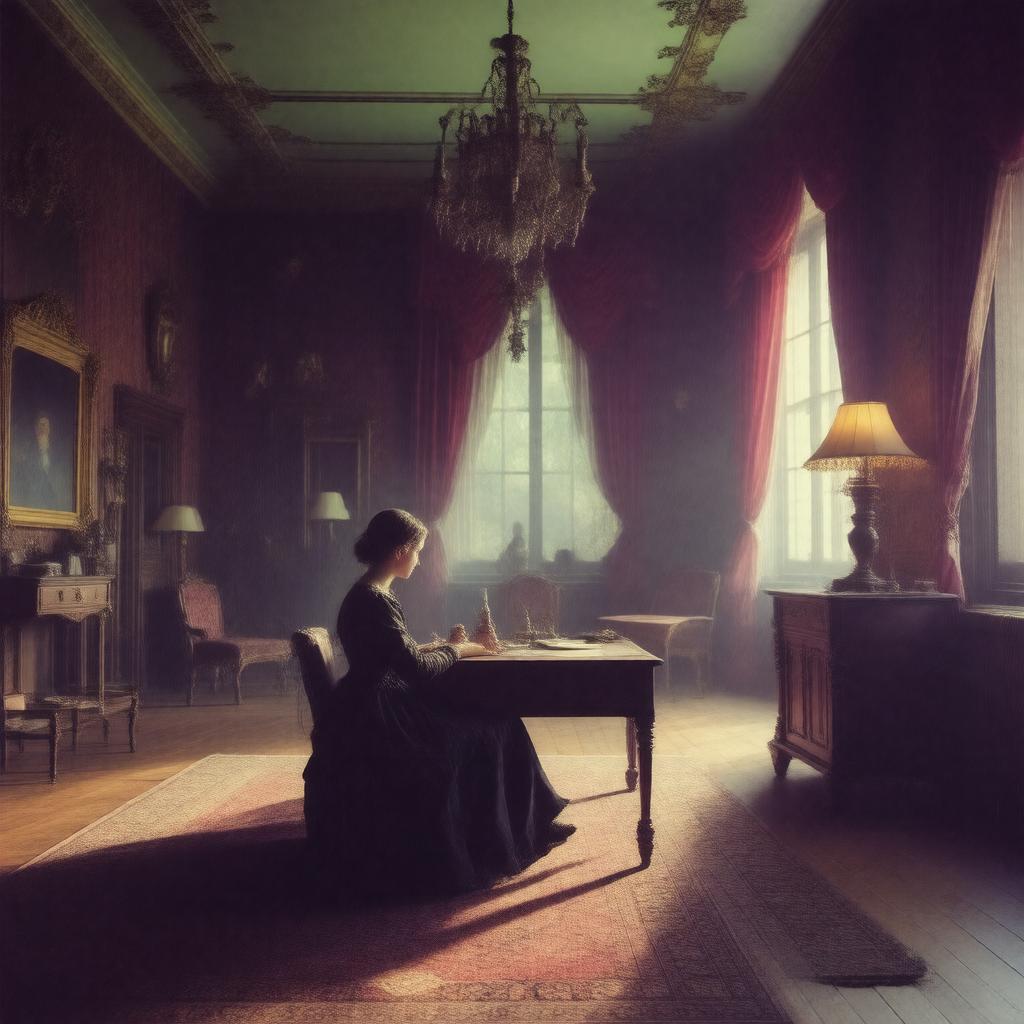Prompt
"Generate an image of a melancholic, 19th-century Norwegian living room with a woman sitting alone at a desk, surrounded by opulent furnishings and eerie shadows, evoking a sense of claustrophobia and desperation, representing Hedda Gabler, the main character of Henrik Ibsen's 1890 psychological drama play, Hedda Gabler."

